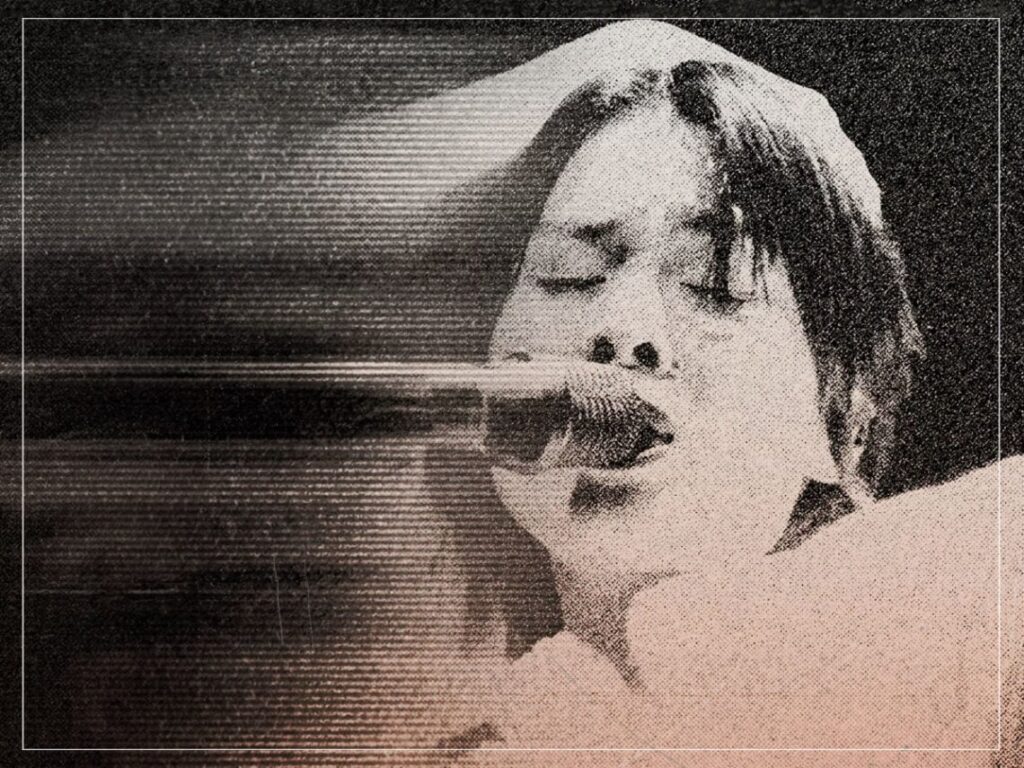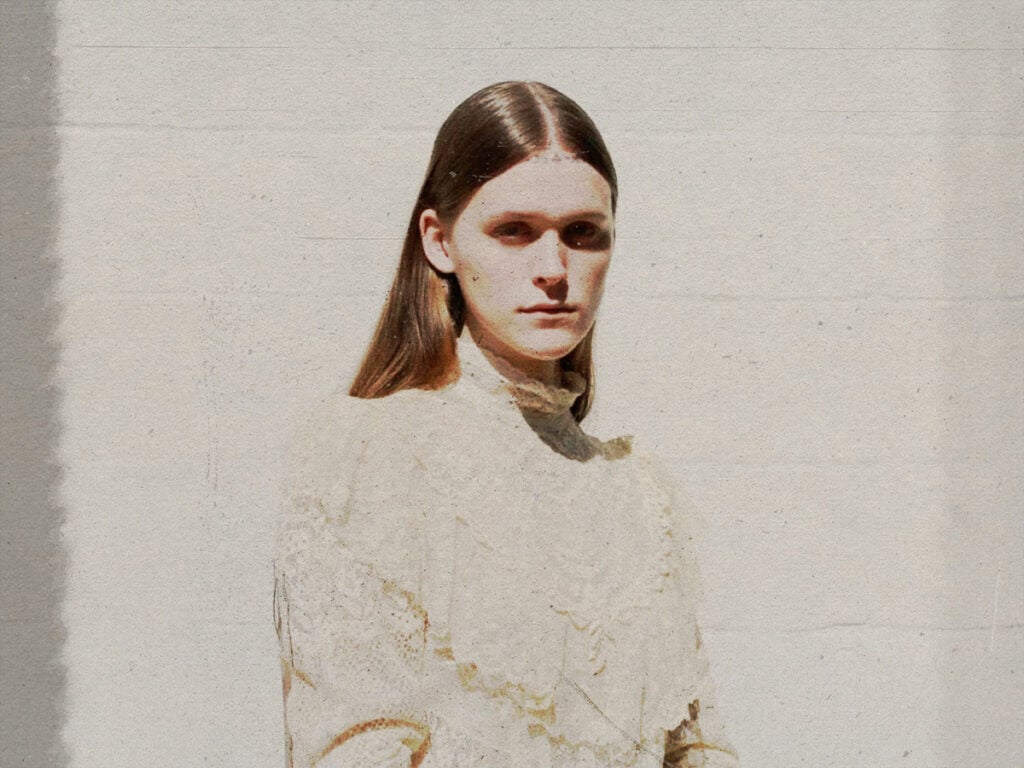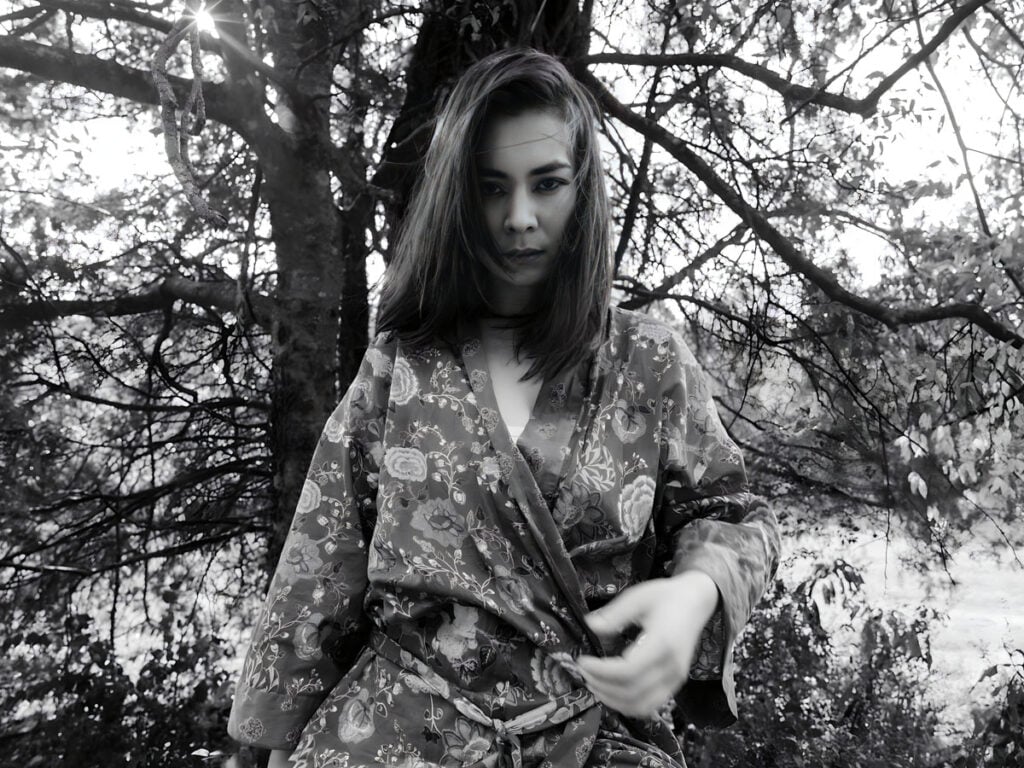Sad Girl Summer: All Points East deliver the most expertly curated date of festival season with Mitski
 Posted On
Posted On
(Credits: Far Out / All Points East / Lexie Alley)
What makes a good festival? Guitars thrashing, hands clapping, pints splashing? That trio seems especially pertinent in the UK, where festivals have a rowdy reputation. People come demanding energy as if a good beat to get the feet moving is essential fuel to power the day. But as more and more of the biggest and best-loved artists for a new generation of music lovers are more introspective and less extroverted, does the stereotype cut it anymore? London’s All Points East boldly tested out the prospect of a new kind of festival with an expertly curated lineup for the ultimate ‘Sad Girl Summer’, headlined by Mitski.
It’s absolute gold for a select kind of listener. From the second the lineup dropped, it was easy to predict exactly the kind of crowd that would descend upon Victoria Park for their Mitski headline date. Tagging names like Ethel Cain, Arlo Parks, Beabadoobee, Suki Waterhouse and a host more tender, balladic, indie-pop artists of note onto the list, the festival hit the nail right on the head as they delivered what is easily the most perfectly curated date of the summer. But while each name on the lineup is brilliant in headphones, it instantly begged the question as to whether these so-called ‘sad girl’ acts could provide the kind of energy a festival needs.
Let’s pause a moment to define what ‘sad girl’ even means. Largely, it’s a label attached to female artists that deliver poetic lyricism, or, more broadly, it’s music enjoyed by a particular type of girl, one with a penchant for the emotive. But realistically, it’s a label that means nothing anymore beyond a dull, vague descriptor often lazily tagged on to artists that are far more interesting than the term could ever give them credit for. As the day got underway, this was proved time and time again as each new act brought something distinct and different to the table, defying anyone who tried to umbrella term them and destroying any suggestion that they couldn’t keep up with the kind of energy a festival demands.
First up was Ethel Cain. As ‘House Of Nebraska’ starts up, it only takes one piano chord to capture a whole crowd. When that opening note rings out, a cheer breaks out that is louder than any other I’ve heard at that kind of early evening festival slot. It’s usually the time when people are just milling around or focused on fetching their first drinks.
Instead, it felt like everyone was in the palm of Cain’s hand as tracks from Preacher’s Daughter proved not only how powerful that debut album is but her performative prowess. Sure, the lyrics are sad, but the energy radiating from her crowd, who were singing every word, is exactly what every festival is aiming for, just with a different sound.

Elsewhere, Suki Waterhouse put on a set that should silence any voice that attempts to doubt her worth as an artist. By the time she gets around to playing a cover of Oasis’ ‘Don’t Look Back In Anger’, with the star cosplaying as perhaps the ultimate British festival band, she managed to subvert their usual ethos. The power of such an anthemic track was mutated into something truly affecting in a different way—a way that deserves more stage time rather than being relegated to the dark corners that the ‘sad girl’ label curses people towards.
If Waterhouse deserves to shuffle up to the main stage, Molly Payton is more than ready to take her place on the second tier. While the majority of the crowd raced to Beabadoobee, the up-and-comer played to a small tent half-full like it was a packed-out venue. Joined by Oscar Lang on guitar, Payton’s band were tight and loud, creating a boisterous nest to hold her own brand of introspectively poetic and emotive lyrics.
But everyone is there for one person. The ultimate ‘sad girl’, the true queen of the new genre, Mitski. She’s a strange phenomenon. Sometime between the lockdowns, when each new week seemed to turn one of her tracks into a viral hit, and when her latest big single ‘My Love Mine All Mine’ hit the charts, she blew up from a cultishly beloved indie act into a globally obsessed-over artist with a huge hoard of fans. It’s an odd one, though, as not only does Mitski herself seem somewhat uncomfortable with the level of fame she’s found, but even the loudest screams in the crowd seem to come from fans who still don’t know album deep cuts.
However, this point grew moot as the set progressed, and Mitski made it clear that by hook or by crook, she was worthy of the main stage. It’s complete with light shows, choreography and charming chat that poked meta fun at the persona she embodies, telling her fans, “I’m gonna head back into character now” after using a break to confess her sincere love and gratitude to the fans.
Musically, it definitely lacks the kind of anthemic bangers that festivals are used to, but Mitski even seemed to play into this, twisting energetic tracks like ‘Love Me More’ with a strange country twang rather than its 1980s pop-inspired original build. She seems to tone it all down to a more muted sound. The set was almost a statement that this was a very different headline performance. This was cosy and comfortable rather than chaotic and frenzied.
With this ethos affirmed, she certainly kept her crowd captivated. At every move, after every track and with every little interaction, her fans are obsessed and overjoyed. With that energy radiating from her audience, with the distinct feeling that this will go down in plenty of people’s memories as a truly great gig, it begs the question once again of what makes a good festival?
If it all comes down to atmosphere and the enjoyment within the crowd, All Points East proved that a ‘sad girl’ lineup can still more than deliver. But mostly, the day is a statement that maybe the term should die, and we should finally call these artists what they are, which is simply great lyricists, great performers, great singers and truly beloved acts that translate just as well to festival stages as they do to quiet moments in your headphones. This curated experience proved that those two things aren’t mutually exclusive.

Related Topics


